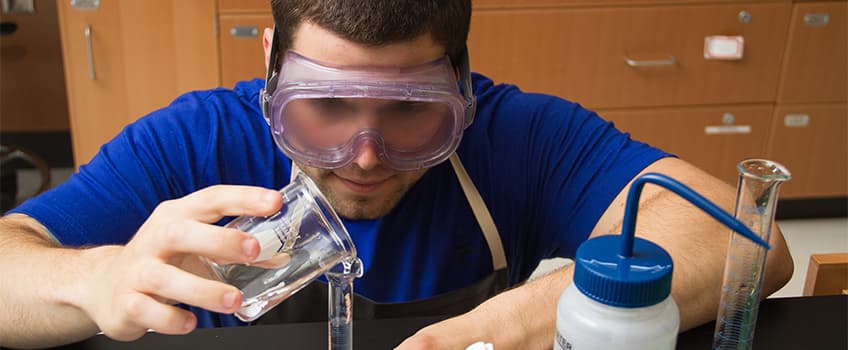Biochemistry and Molecular Biology Program Recognized

The American Society for Biochemistry and Molecular Biology (ASBMB) recently awarded Stockton’s BCMB major with a full, seven-year accreditation — one of only two in New Jersey. Since 2013, the society has granted accreditation to only 101 programs nationwide.
Galloway, N.J. — Stockton University’s Biochemistry and Molecular Biology Program (BCMB) has been recognized as one of the top programs in the country by a national scientific and educational organization.
The American Society for Biochemistry and Molecular Biology (ASBMB) recently awarded Stockton’s BCMB major with a full, seven-year accreditation — one of only two in New Jersey. Since 2013, the society has granted accreditation to only 101 programs nationwide, ranging from R1 research schools to liberal arts institutions like Stockton.
It was especially satisfying to receive recognition for the extent and quality of the research done by our undergraduates. Faculty members spend many hours in labs with them, both in classes and conducting research."
According to the ASBMB, the accreditation process is a national, independent, outcomes-based evaluation that recognizes excellence in bachelor’s degree programs. A panel of experts from academia and the private sector evaluated Stockton’s program in three areas: curriculum, faculty and infrastructure.
The society mentioned the following strengths about Stockton’s program, which has been in existence since 1997:
- Strong research programs with undergraduates resulting in grants, presentations and publications for most faculty members;
- High percentage of graduates performing research;
- Diversity and depth of faculty training;
- Promotion of communication skills and
- Institutional commitment to a diverse, equitable and inclusive environment.
All upper-level labs in Stockton’s program are taught by program faculty and the major emphasizes laboratory skills, use of instruments and research skills to prepare students for employment or for study toward a variety of advanced degrees, said Kelly Keenan, professor of Chemistry and the BCMB associate program chair.
“This accreditation is a valuable resource for both faculty and students,” Keenan said. “It was especially satisfying to receive recognition for the extent and quality of the research done by our undergraduates. Faculty members spend many hours in labs with them, both in classes and conducting research. Overall, it is gratifying to know that the faculty have delivered a degree that produces high-quality graduates that are comparable to those seen nationally.”
— Story by Mark Melhorn


